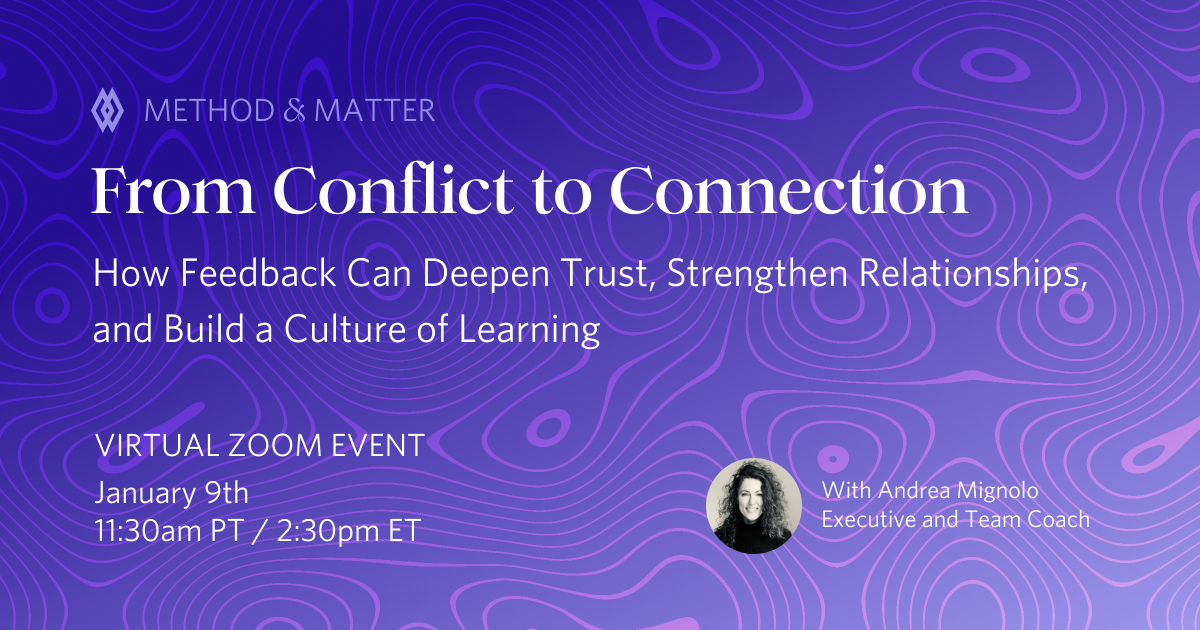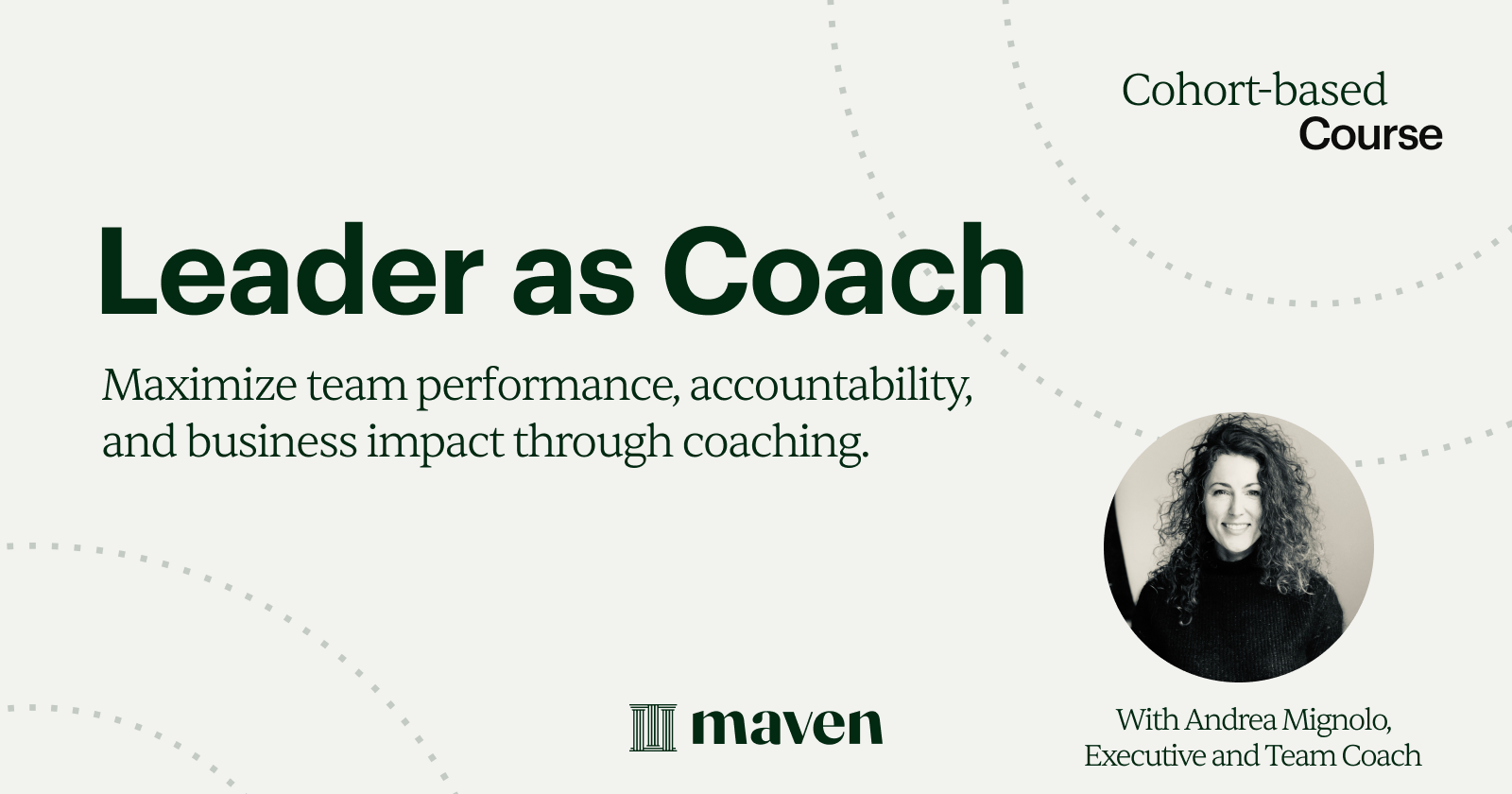Words Make Worlds
Issue 12
January 7th, 2024
Taking Action
🎊 Happy New Year 🎊, and welcome to Issue 12 of Words Make Worlds, where we continue our journey through the coaching process framework with a look at what happens in the “Now What?” part of the cycle. If you are new here (welcome!) you can quickly catch up by checking out Issue 9: The Coaching Process, Issue 10: Noticing and Exploring, and Issue 11: Reflection and Meaning Making.
If you don’t have time to make it to the end of the newsletter I have two announcements I don’t want you to miss: 1) I am hosting a free webinar on January 9th on giving better feedback and 2) Leader as Coach has a new cohort launching on January 15th - come join us!
And with that, let's get on with the issue.
The Idea
“When clients experience a new insight, they feel as if a door has opened to a new way of seeing. They have yet to walk through the door.” - Marcia Reynolds, Coach the Person, Not the Problem
By now you’ve gotten a sense of how coaching conversations slow things down so that people can explore and reflect on their experience, a key part of the noticing and exploring phase. The usefulness of this coaching move is that it asks people to critically assess and make visible what they think is going on and what assumptions, limiting beliefs, biases, and other factors might be at play. It guides them to look under the surface at what is going on in their inner world, wonder about what might be going on in others, and think about what might be happening systemically that is contributing to the issue or situation they are exploring with you. The net result of raising awareness is an increase in the amount of information you have available for the next phase of the coaching process: meaning making.
Meaning making is where you look at everything you have uncovered together and ask, “What sense can we make of all of this? What patterns are emerging? What from the past does this bring to mind? What no longer feels true? What new stories are emerging?” Meaning making is an act of knowledge creation — it is the process of developing new understanding and new ways of seeing so that the person being coached begins to experience themselves, their colleagues, and the situation in new ways.
Okay, so you’ve increased awareness, surfaced new information, and made some meaning from what you’ve discovered. Now what? Precisely! The “Now What?” phase of the cycle brings us to the part of the conversation where new commitments are made towards future actions. Remember, it isn’t a coaching conversation if it doesn’t lead to action! The transformative power of coaching is both in the new knowledge it creates and how it asks people to apply that knowledge directly in the real world.
Action might look like:
- Role playing or trying something new during the session.
- Engaging in additional reflection after the session
- Conducting self-observation throughout the week in service of ongoing awareness
- Trying something new after the conversation is over
Be sure that the person you are working with chooses the action they want to take (within reason - if you are their manager and see them choosing action that will clearly backfire or misses the mark of organizational goals, then put some guardrails in place). This encourages ownership of the learning journey and taps into intrinsic motivation tied to personal and professional goals.
The Practice
You want to move into application questions after the person you are working with has some kind of shift in perspective or ah-ha moment. This is critical to create an opening for new actions and behaviors — without the necessary perspective shift any commitments to action will be a rehash of the same behaviors that created the issue in the first place. Here are some questions that can facilitate commitments to future action in the “Now What?” part of the conversation:
- What will you do now?
- How could you make this happen?
- What new ideas do you have on how to get there?
- What feels possible now that wasn’t before?
- What might get in the way?
- Given what you have uncovered, what will you do differently?
- How could you improve the situation?
- What are some other approaches to consider?
- What is another option?
- What could you do to bring everything back in alignment?
- Where haven’t you looked for a solution yet?
- What’s the solution you’ve been too scared to try?
- If you were to create an ideal situation, what is your goal? How would it work?
You may find that the person you are coaching isn’t sure what to do next. In this case, spend some time brainstorming together around what new actions might be possible. Once you’ve come up with a list, ask them to select the one or two that feel most applicable and doable.
Webinar: From Conflict to Connection
On January 9th at 11:30am Pacific Time I’ll be hosting a free webinar on using feedback to deepen trust, strengthen relationships, and build a culture of learning. Interested? Learn more and sign up here!

Leader as Coach
A new cohort is launching on January 15th and there are still a few spaces open! If you are looking to kick of 2024 with a new/expanded approach to your leadership practice, this is the course for you! You can learn more about the course, including a peek at the syllabus, over on Maven.

Quotes I ❤️
It may not be quite so obvious in those short, informal, coach-like conversations that a team leader has with a direct report, but the potential is there for valuable and lasting impact. For leaders, this approach accesses a mind-set that includes a focus on both results (action) and on growth (learning). This is, fundamentally, the role of leadership; both lenses are essential. Every initiative and every issue that arises is an opportunity for team members to learn in the process of taking action. At the same time, it is a way for leaders to develop their leadership eyesight: seeing those opportunities. - Co-Active Coaching, Fourth Edition
That’s all for this issue! I hope the new year is starting off brightly with focus, hope, and purpose. If you are looking for an exercise to facilitate reflection on the past year and commitments for the year ahead, checkout “At the End of a Cycle,” the process I use for my own yearly (and quarterly) reflections.
Until next time,
Andi
Sign-up to receive Words Make Worlds in your inbox.
Your privacy is very important to me. I will not sell or share your email address, nor include tracking pixels in any emails I send to your inbox. You can unsubscribe instantly at any time.